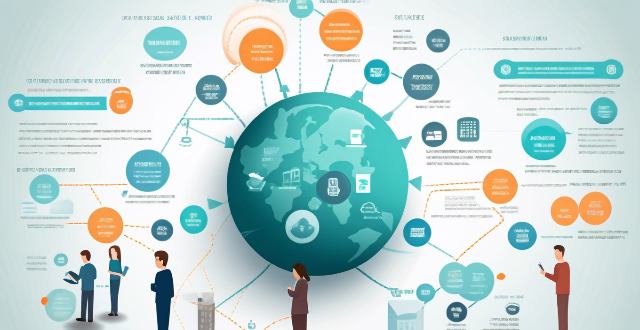Germany's open immigration policy brings economic, social, and political challenges including infrastructure strain, job market competition, cultural integration difficulties, religious diversity conflicts, anti-immigration sentiments, international pressure, and legal challenges. Addressing these requires a collaborative approach involving various sectors to minimize challenges while benefiting from the policy.

Challenges Faced by Germany Due to Its Open Immigration Policy
Germany's open immigration policy has brought about several challenges for the country. These challenges can be broadly classified into economic, social, and political issues. Let's delve deeper into each of these categories:
Economic Challenges
1. Infrastructure Strain: The influx of a large number of immigrants puts a strain on the existing infrastructure, including housing, transportation, healthcare, and education facilities. This can lead to overcrowding and a decrease in the quality of services available to both immigrants and native residents.
2. Job Market Competition: While immigrants often fill gaps in the labor market, they also compete with native workers for jobs, especially in industries with a surplus of labor. This can lead to increased unemployment rates among certain demographic groups within Germany.
3. Public Finance Burden: Integrating immigrants into society requires significant financial resources. Providing language training, vocational education, and other integration measures can put a strain on public finances. Additionally, some immigrants may not contribute enough to the tax system to offset these costs.
Social Challenges
1. Cultural Integration: One of the main challenges faced by Germany is the integration of immigrants into German culture. Language barriers, differences in customs and traditions, and varying levels of acceptance can make this process difficult.
2. Social Tensions: The presence of a large immigrant population can sometimes lead to social tensions between different ethnic groups. These tensions can manifest as discrimination, xenophobia, or even violence.
3. Religious Diversity: Germany has become home to people from diverse religious backgrounds due to its open immigration policy. This diversity can lead to conflicts over religious practices and beliefs, particularly when they clash with established norms and values in German society.
Political Challenges
1. Anti-Immigration Sentiments: The rise of far-right political parties and movements in Germany is partly fueled by anti-immigration sentiments. These groups capitalize on concerns about immigration to gain political support, which can lead to polarized debates and policies that are not always grounded in reality.
2. International Pressure: Germany's open immigration policy has led to it being criticized by other European countries for taking in too many refugees and migrants. This criticism can create diplomatic tensions and complicate international relations.
3. Legal Challenges: Dealing with asylum seekers and undocumented immigrants poses legal challenges for the German government. Enforcing immigration laws while respecting human rights can be a delicate balancing act that requires careful consideration and implementation.
In conclusion, Germany's open immigration policy has brought about numerous challenges across various domains. Addressing these challenges requires a multifaceted approach that involves collaboration between different levels of government, civil society organizations, and the private sector. By working together, Germany can continue to benefit from its open immigration policy while minimizing the associated challenges.